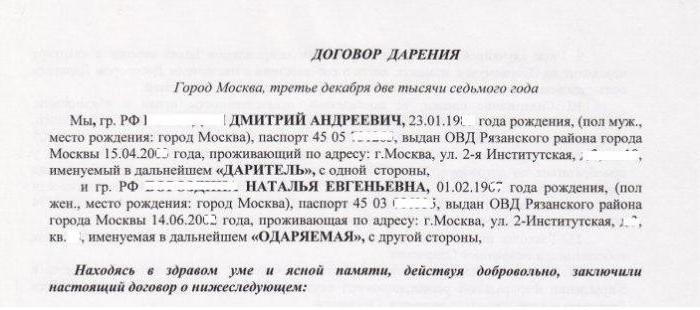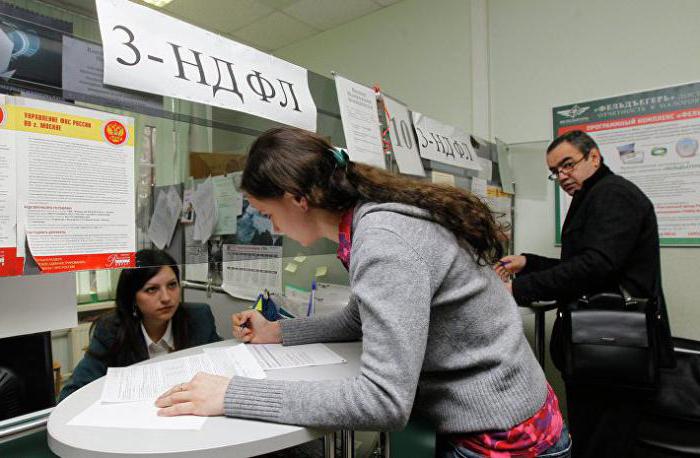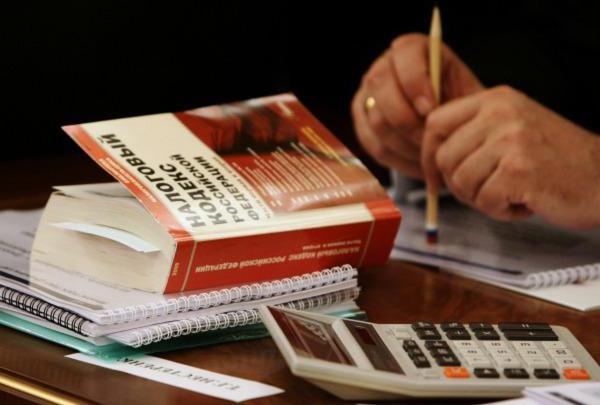Today, we will be interested in the gift tax and inheritance of a property. When and under what circumstances should these payments be made? Who can be freed from them? What is meant by the terms "inheritance" and "gift"? Answers to these questions will be surely given below. Understanding all this is much easier than it sounds.
Giving is ...
What is a gift? A deed of gift is a way of transferring property from one person to another. In this case, the former owner must be alive. This is a very popular method of re-registering property for citizens in life.
Real estate donated to a person will not be considered jointly acquired property in the marriage. This is the personal property of the person on whom the gift contract is made. Donations are made out to any person.
Inheritance
What is inheritance? This is a way of transferring property from one owner to another at the death of the first. In other words, citizens enter into the inheritance after the owner of the property dies.
Usually, heirs are understood as relatives. In particular, children. But the legacy can be written to third parties. This is not the most frequent, but occurring in practice, phenomenon. In which case is the gift and inheritance tax paid? How much will you have to pay under certain circumstances?
Payment Sizes
It all depends on who the citizen is. Property tax (inheritance or gift - not so important) is paid in certain circumstances. The amount of payment varies.
So, if the heir or donee is a citizen of the Russian Federation, he will have to pay a tax of 13% of the value of the gift / inheritance. And foreign citizens or non-residents of the country pay 30% each.
Payments in the USA
Such rules are established today in Russia. And what other inheritance and gift taxes are there? The United States, for example, has a rather interesting system in these areas.
For example, the first 5 million properties for residents of the United States are not taxed upon inheritance or gift. Non-residents should not pay for property with a total value of not more than 60 thousand dollars.
The US inheritance tax is about $ 21,000. At the same time, spouses of US citizens may not pay for the inheritance at the death of the husband / wife. Inheritance taxes are relevant only for non-residents, but under certain circumstances, you can get rid of this obligation.
It is noted that inheritance taxes were invented for wealthy US citizens. Migrants here have to take out insurance and other services that can cover the costs of property received. The Russian system in this area is more flexible.
How much is calculated
Property tax (inheritance or gift) is calculated in the Russian Federation from what amount? It's no secret that now real estate has several values. They play a role in calculating taxes.
When it comes to inheritance, the market price of the inheritance is most often taken into account. Since 2016, it has been equated with the cadastral.
When giving, you can agree. The value of property transferred by drawing up a donation may not be more or less than 20% of the market value. In Russia, usually the contractual value of property does not take place. Therefore, the tax will be calculated taking into account cadastral prices.
If the value of the property specified in the gift agreement or will is less than the cadastral by more than 70%, it is the latter price that will serve as the basis for calculating taxes.
Who is free
But that is not all. The thing is that in Russia many citizens can be completely exempted from paying tax fees when receiving property as a gift or by inheritance.
The gift and inheritance tax, as a rule, exists for outsiders and distant relatives. Close relatives do not make these payments.
Thus, the following are exempted from taxes when receiving property as a gift or by registering an inheritance:
- husbands and wives;
- grandparents of a citizen;
- parents;
- adoptive parents;
- adopted children;
- native children;
- granddaughters and grandchildren;
- sisters;
- brothers.
In addition, consular workers and their families are exempted from taxes. Nevertheless, this does not mean at all that citizens of these categories do not pay anything at all. When making a will or deed, you have to pay for notary services. But these payments have nothing to do with taxes.
Who is not exempt from taxes
The bulk of citizens, as a rule, avoid taxes when registering gifts and at the time of inheritance. But there are exceptions. It is important to remember that inheritance and gift tax in the previously mentioned amounts are levied on all unauthorized persons. That is not from relatives. No benefits are provided in this area.
Among relatives, property taxes, after accepting a gift or inheritance, must be paid by:
- sons-in-law;
- daughters-in-law;
- aunts and uncles;
- nieces and nieces;
- cousins and brothers;
- other relatives.
In other words, only the categories of citizens listed above are exempt from tax. At the same time, pensioners are not beneficiaries: if they accept a gift or enter into an inheritance, 13% of the property value must be paid. No exceptions!
Payment period
It’s clear what the inheritance and gift tax is. The timing of settlement with the state also worries many citizens. When should a person transfer tax on property obtained by gift or inheritance?
First, you must first report. To do this, you will need to file a tax return with the FTS at the place of registration. Nobody is exempted from this process. Even close relatives, when registering gifts or inheritances, transfer the 3-NDFL form to the tax. This must be done before April 30 of the year following the one in which the transaction was concluded. For example, if a donation was issued in 2014, you must report the transferred property in 2015.
Secondly, there is such a thing as an immediate payment deadline. This is the date by which the gift and inheritance tax must be paid. Today in Russia it is necessary to make settlements until July 15. Of course, the year following the one in which the transaction took place is understood.
What do you need
And what can be useful to a citizen in order to correctly report and pay for the transferred property? In fact, everything is not as difficult as it seems.
The following documents must be prepared:
- testament / deed of will;
- death certificate of a citizen (if the recipient has inherited);
- documents confirming kinship (if any);
- identity card (it means a civil passport);
- extracts from home books;
- certificates from the BTI (if we are talking about real estate);
- certificate of ownership (extracts from the Unified State Register are also accepted);
- cadastral passport of real estate (preferably);
- tax return (form 3-personal income tax).
It's enough. It is necessary to submit the relevant documents to the Federal Tax Service at the place of registration of the citizen-recipient of the property. Further, in the previously indicated time frame, tax is paid. Checks and receipts are recommended to be kept at home in the original for at least 3 years.
Other benefits
Does inheritance and gift tax have benefits? Not. As already mentioned, only close relatives can be completely exempted from tax obligations upon receipt of property. No further benefits are foreseen.No way.
This means that even Federal beneficiaries must pay 13% of the value of the gift or inheritance. There are no exceptions at the regional level.
Other taxes
There is no taxation under a deed of gift and inheritance for close relatives in Russia. It is a fact. But it should be noted that in the future close relationship with a citizen does not exempt from property taxes.
What does it mean? After the transfer of real estate to property, each person will begin to pay property tax for a new property. Federal beneficiaries can get rid of it.
These include:
- seniors;
- disabled people;
- veterans;
- military men with a length of service of 20 years;
- families of military personnel who died in the service;
- injured in Chernobyl or at the Mayak station.
At the same time, the degree of kinship with the former owner of the property does not play a role. Thus, distant relatives or third parties pay the inheritance or gift tax, and then transfer the money as property tax fees. Close relatives will immediately pay property tax. Moreover, all family members and not even relatives can be exempted from the property tax at the federal level.
Summary
Now it’s clear what tax on gift and inheritance takes place in Russia. As a rule, distant relatives and third parties pay 13% of the cadastral value of the property received. Close relatives are exempted from the tax charge in full.
Such rules apply in Russia in 2017. Only a few may not pay tax after receiving the property as a gift or as an inheritance. As soon as the property is registered for the new owner, you will have to pay property tax. This is an annual payment. The gift or inheritance tax is transferred only once in a timely manner.